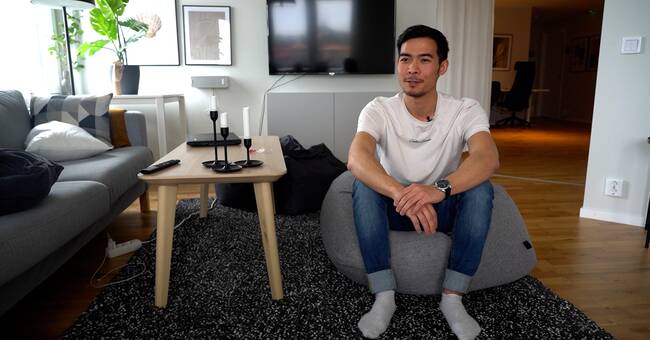The house in Handen is newly built and modern.
Daniel Hellström moved here when he got a job in Stockholm.
Completely without contacts, the 25-year-old from Hammarstrand in Jämtland has managed to get what many residents of the capital of the same age hardly dare to dream of: A lease in the first place.
And that without a single day in the housing queue.
- It feels great fun and of course better than the alternative - to rent something expensive second hand and constantly risk not being allowed to stay.
It is called shared housing - co-living - and has some similarities with the collective housing of the 1970s.
The difference now, 50 years later, is that it is companies that drive the idea.
The target group is people aged 20-35 who like to meet people and socialize.
And who by sharing costs can get spaces and housing standards they otherwise would not be able to afford.
Small room - large areas
Huset i Handen is the first "hub" of several that the company Colive is planning in Stockholm, Gothenburg and Lund.
It accommodates 17 larger apartments shared by 5-6 people.
Each rents a lockable room of between 6 and 16 square meters which is considered the private residence.
The rest of the space is shared.
The kitchen with dining area, appliances and cooking utensils is used by all.
Likewise the living room with sofa group, TV and sound system.
There are two bathrooms and additional toilets.
Electricity, water, wi-fi and streaming services are included in the rent, as well as weekly cleaning.
On the ground floor of the house, in addition to storage, laundry room and bicycle garage, there is a large patio in the yard and spacious lounge areas that tenants can use for parties, for example.
For this, Daniel pays SEK 6,995 a month.
Matching - not queuing
In the "hub" in Handen, which has room for a total of 102 tenants, there is also an employed landlord who takes care of newcomers, takes care of cleaning the common areas and works as a caretaker and caretaker if necessary.
A prerequisite for shared housing is that it works socially. Therefore, it is not the place in the housing queue that decides who is allowed to sign an apartment contract. People who apply for housing with Colive must answer questions about habits, sense of order, interests, food preferences and even values. Then the company matches together those you think are suitable to live together.

